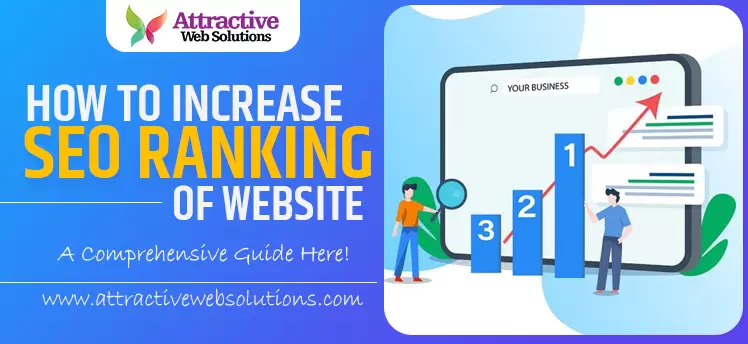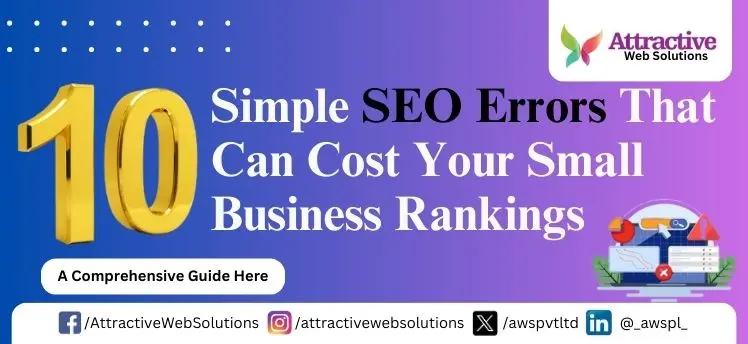In the digital era, where competition for online visibility is fierce, a well-optimized website can set your business apart. The SEO ranking of website determines its position on search engine results pages (SERPs), directly impacting your traffic, credibility, and revenue. If your website isn't ranking well, it's missing out on potential customers.
In this extensive guide, we will explore actionable strategies to increase SEO ranking of website, optimize its performance, and make it a go-to destination for your audience.
Understanding the Importance of SEO Ranking of Website
A high SEO ranking is essential for several reasons:
- Increased Visibility: Most users don’t go beyond the first page of search results. Ranking higher ensures your website gets noticed.
- Credibility and Trust: Websites that rank high are perceived as more reliable and authoritative.
- Organic Traffic Growth: SEO reduces reliance on paid advertising by driving free, organic traffic to your site.
- Better User Experience: Optimized websites are faster, mobile-friendly, and provide valuable content tailored to users' needs.
Without a strong focus on SEO, even the most visually appealing websites may remain invisible to their target audience.
Step-by-Step Guide to Increase SEO Ranking of Website
Here is a detailed breakdown of strategies to optimize your website for better rankings.
1. Conduct In-Depth Keyword Research
Keywords form the foundation of SEO. Identifying the right keywords ensures your website aligns with the queries of your target audience.
How to Perform Effective Keyword Research:
- Use tools like Google Keyword Planner, SEMrush, or Ahrefs to identify high-volume, low-competition keywords.
- Focus on long-tail keywords, which are more specific and easier to rank for (e.g., "how to increase SEO ranking of website" instead of "SEO ranking").
- Analyze competitor websites to uncover additional keyword opportunities.
- Group keywords by intent: informational, navigational, or transactional.
Pro Tip: Incorporate your target keywords naturally in titles, meta descriptions, headings, and throughout the content.
2. Optimize On-Page SEO Elements
On-page SEO focuses on optimizing the content and HTML structure of your website to make it more search engine-friendly.
Key On-Page SEO Elements:
- Title Tags: Create compelling, keyword-rich titles. Example: "10 Proven Ways to Increase SEO Ranking of Website."
- Meta Descriptions: Write clear, concise summaries of your pages with focus keywords.
- Header Tags: Use H1 for the main heading and H2/H3 for subheadings to structure your content.
- Image Optimization: Compress images for faster loading and include descriptive alt text with keywords.
- Internal Linking: Link to relevant pages on your website to enhance user navigation and spread link equity.
Pro Tip: Ensure URLs are short, descriptive, and keyword-rich.
Read Also | Which On-Page Element Carries the Most Weight for SEO?
3. Focus on High-Quality Content Creation
Content is the backbone of SEO. Search engines prioritize websites that offer value, relevance, and engagement.
Best Practices for Content:
- Write long-form, in-depth content (1,500+ words) that thoroughly answers user queries.
- Use engaging formats such as how-to guides, lists, infographics, and videos.
- Update and refresh old content to maintain its relevance.
- Incorporate internal links to guide users to related content.
Example:
For the keyword "how to increase SEO ranking of website", create a blog post that provides actionable tips, tools, and examples, just like this one.
Pro Tip: Use multimedia elements like charts, graphs, and videos to make your content visually appealing.
4. Improve Website Loading Speed
Page speed is a critical ranking factor. A slow website not only frustrates users but also reduces dwell time, increasing bounce rates.
Steps to Enhance Page Speed:
- Use tools like Google PageSpeed Insights or GTmetrix to identify speed issues.
- Compress and optimize images.
- Minify CSS, JavaScript, and HTML code.
- Use a Content Delivery Network (CDN) to reduce latency.
Pro Tip: Aim for a page load time of under 2 seconds to retain visitors and improve SEO.
5. Ensure Mobile-Friendliness
Mobile-friendliness is no longer optional, as over 60% of web traffic comes from mobile devices.
How to Optimize for Mobile:
- Use a responsive design to ensure your site adapts to different screen sizes.
- Optimize buttons, menus, and forms for touch inputs.
- Test your website's mobile usability with Google’s Mobile-Friendly Test.
Pro Tip: Simplify navigation on smaller screens to improve the user experience.
6. Master Technical SEO
Technical SEO ensures that your website’s backend structure is optimized for search engines to crawl and index effectively.
Key Technical SEO Practices:
- XML Sitemap: Create and submit your sitemap to Google Search Console.
- Robots.txt: Guide search engine crawlers by allowing or disallowing specific pages.
- Fix Broken Links: Redirect 404 pages to relevant content or your homepage.
- Enable HTTPS: Use SSL certificates to secure your website and boost rankings.
Pro Tip: Conduct regular site audits with tools like Screaming Frog to identify technical issues.
7. Build a Strong Backlink Profile
Backlinks are one of the most significant ranking factors. High-quality backlinks signal to search engines that your website is authoritative and trustworthy.
Strategies to Earn Backlinks:
- Create Shareable Content: Publish original research, infographics, or case studies.
- Guest Blogging: Write for reputable sites in your niche and link back to your website.
- Broken Link Building: Reach out to websites with broken links and suggest your content as a replacement.
- Social Media Promotion: Share your content on social platforms to attract links naturally.
Pro Tip: Focus on quality over quantity. A few links from high-authority websites are better than many from low-quality sites.
8. Optimize for Local SEO
For businesses targeting specific regions, local SEO is essential.
Local SEO Optimization:
- Set up and optimize your Google My Business profile.
- Use local keywords, such as "Best SEO Company in Delhi NCR."
- Get listed on local directories and review platforms.
- Encourage customers to leave positive reviews on Google and Yelp.
Pro Tip: Keep your Name, Address, and Phone Number (NAP) consistent across all online platforms.
Read Also | How Google My Business Impacts Local SEO and How to Optimize It
9. Leverage User Experience (UX)
A seamless user experience keeps visitors engaged and signals to search engines that your website is valuable.
UX Best Practices:
- Improve navigation by categorizing pages logically.
- Use readable fonts and clean layouts.
- Minimize intrusive pop-ups that disrupt the user journey.
- Include a search bar for easier content discovery.
Pro Tip: Use heatmap tools like Hotjar to analyze user behavior and optimize your layout.
10. Monitor and Analyze Performance
SEO is not a one-time effort. Regularly tracking your website’s performance helps identify areas of improvement.
Tools to Use:
- Google Analytics: Track traffic, user behavior, and conversions.
- Google Search Console: Monitor keyword rankings and indexing issues.
- Ahrefs or SEMrush: Analyze competitor strategies and backlinks.
Pro Tip: Create monthly reports to measure your progress and refine your strategy.
Read Also | Difference Between Google Analytics and Google Search Console: A Complete Guide
Common SEO Mistakes to Avoid
Even with the best efforts, certain missteps can hurt your SEO. Avoid these common pitfalls:
- Keyword Stuffing: Overusing keywords leads to penalties.
- Ignoring Mobile Users: A non-responsive website affects rankings.
- Duplicate Content: Search engines penalize duplicate or plagiarized content.
- Neglecting Technical SEO: Overlooking site speed, broken links, or security issues.
Conclusion: Start Your SEO Journey Today
Improving the SEO ranking of website is an ongoing process that requires dedication, consistency, and strategic planning. By following the detailed steps outlined in this guide, you can enhance your website’s visibility, attract organic traffic, and achieve long-term success.
At Attractive Web Solutions, the Best SEO company in Delhi NCR, we specialize in helping businesses improve their SEO rankings. From technical SEO to high-quality content creation and backlink building, our expert team is here to guide you every step of the way.
Contact us today to take your website to the top of search engine rankings and grow your business online!









0 Comments